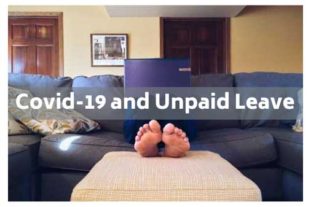 Unpaid leave due to the COVID-19 pandemic is being forced on more Americans than at any other time in our country’s history. As of April 1 of this year, Public Law 116-127, otherwise known as the Families First Coronavirus Response Act, gives workers the right to sue their employers in the event proper leave is not provided. Businesses employing between 50-500 workers must comply with the new law.
Unpaid leave due to the COVID-19 pandemic is being forced on more Americans than at any other time in our country’s history. As of April 1 of this year, Public Law 116-127, otherwise known as the Families First Coronavirus Response Act, gives workers the right to sue their employers in the event proper leave is not provided. Businesses employing between 50-500 workers must comply with the new law.
Consider These Unpaid Leave Circumstances
Many individuals across California and the United States are not showing up for work for reasons beyond their control:
- There is a state or local quarantine;
- They have received notification that they should self-quarantine due to a possible exposure or symptoms of the disease;
- They have experienced disease symptoms and are seeking medical testing or treatment.
Under these circumstances, workers are entitled to the greater of these three wages:
- Your regular pay;
- The federal minimum wage;
- The state minimum wage.
You can top out at as much as $511 per day during the course of your sick leave.
Furthermore, you may be entitled to two thirds of your normal pay — up to $200 daily — if you are unable to work for the following reasons:
- You are caring for an individual who must be isolated or quarantined;
- You are caring for a child who is unable to attend schools due to local closures;
- You are in another situation similar to these that prevents you from going to work.
How it Works
Sick leave and expanded family and medical leave is calculated as follows:
Part time workers are entitled to the average earnings in a two-week time frame. The average going back six months may be used if an employee’s schedule varies significantly from week to week. These workers are entitled to paid sick leave for two weeks, and may extend the payment period for as many as 10 more weeks under the expanded family and medical leave provisions. In the event employees generally put in overtime hours, those too must be compensated under the Emergency Family and Medical Leave Expansion Act. Under the Emergency Paid Sick Leave Act, however, only hours up to 80 in a two-week period are to be paid. [Read more…]

